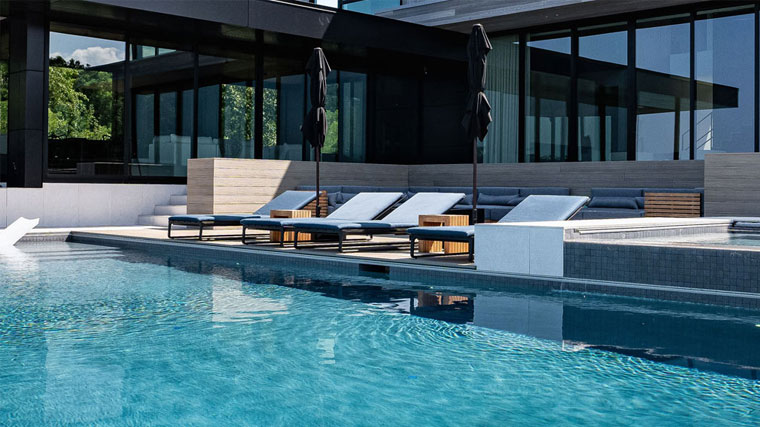
Crystal clear water is the hallmark of a well-maintained pool, and at the heart of achieving this clarity is an effective pool filtration system. Understanding the types of pool filters and how they work can help you ensure your pool remains a sparkling oasis all season long. In this guide, we’ll dive into the world of pool filtration, outlining the different types and providing you with practical tips to maintain optimal water clarity.
Types of Pool Filters:
There are three main types of pool filters, each with its own advantages and method for trapping debris and keeping your pool water clean.
- Sand Filters: These filters use a layer of sand to capture and remove debris from the water. Water is pushed through the sand, leaving impurities behind. Sand filters are popular for their ease of maintenance and cost-effectiveness.
- Cartridge Filters: Cartridge filters trap dirt and debris within a replaceable, fine filter material. They offer a larger filtration area, require less water flow, and can capture smaller particles than sand filters, making them efficient and eco-friendly.
- Diatomaceous Earth (DE) Filters: DE filters offer the highest level of filtration, using a natural substance called diatomaceous earth to filter out even the smallest of contaminants. They are ideal for pool owners who demand the clearest water possible but require more maintenance.
Maintaining Your Pool Filter:
No matter which type of filter your pool uses, regular maintenance is key to ensuring it operates effectively.
- Cleaning and Replacement: Cartridge filters need to be removed and cleaned periodically and replaced every few years. Sand in sand filters should be replaced every 3-5 years, and DE filters require backwashing and replenishing the DE powder.
- Backwashing: For sand and DE filters, backwashing reverses the water flow to clean the filter media. This should be done when the pressure gauge indicates a rise in pressure, signaling the filter is full of debris.
- Routine Checks: Regularly check the filter’s pressure gauge and the flow of water returning to the pool. A significant change can indicate a clog or a need for maintenance.

Tips for Optimal Water Clarity:
Beyond regular filter maintenance, here are additional tips to keep your pool water crystal clear:
- Regular Testing and Chemical Balance: Ensure your pool’s chemical levels are balanced. Incorrect pH, chlorine, or alkalinity levels can hinder filtration efficiency and clarity.
- Skimming and Vacuuming: Use a skimmer net and pool vacuum to remove debris from the water’s surface and floor, reducing the load on your filter.
- Circulation: Keep the water moving. Proper circulation helps distribute chemicals evenly and prevents debris from settling, which can make your filter’s job easier.
Understanding and maintaining your pool’s filtration system is essential for keeping your water clean and clear. Whether you have a sand, cartridge, or DE filter, regular maintenance and a little TLC can go a long way in ensuring your pool remains a pristine, refreshing retreat.
If you’re unsure about the best filtration system for your pool or need assistance with maintenance, Sunset Pools & Spas is here to help. Our experts can guide you through the options and provide professional services to keep your pool at its best. Don’t let filtration frustrations cloud your summer fun—reach out to us today!